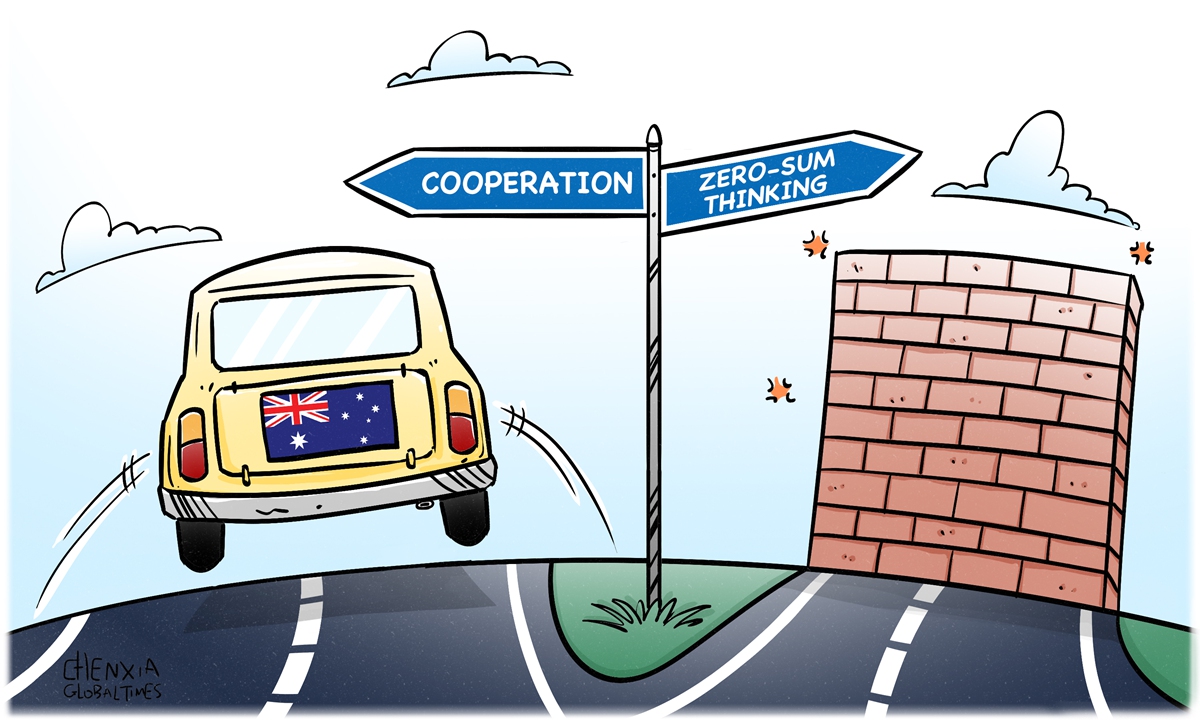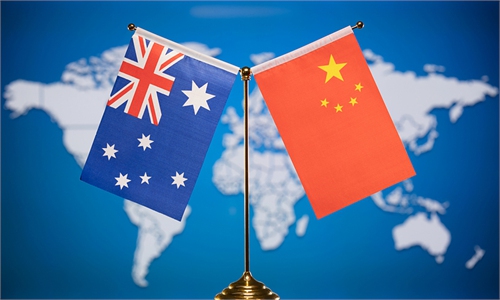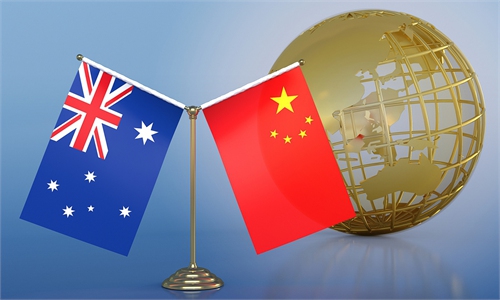
Illustration: Chen Xia/Global Times
On the eve of an Australian delegation visiting Beijing to restart a high-level dialogue after a three-year hiatus, some misleading voices in the Western media, out of zero-sum thinking, are trying to interfere with the dialogue which is expected to help consolidate the hard-won improvement in bilateral relations.Australian Prime Minister Anthony Albanese was scheduled to fly to Jakarta on Tuesday to launch a major new strategy to deepen Australia's trade and investment ties with Southeast Asia and "hedge against top trading partner China," the Guardian reported on Monday.
Australia's effort to strengthen economic and trade cooperation with Southeast Asian countries or develop a new program are just parts of normal exchanges and actions. This should not be viewed through a geopolitical lens and portrayed as "a hedge against China."
If Australia's new strategy does not involve geopolitics and zero-sum thinking, but merely boost trade cooperation with Southeast countries, it will help promote the integration of industry chains among Regional Comprehensive Economic Partnership members, and China will also benefit.
But no matter how diversified Australia's economic and trade partners are, China is still Australia's largest trading partner. Australia's new trade strategy in Southeast Asia cannot serve as a hedge against China. Hopefully, this erroneous zero-sum game will not give extreme anti-China voices an opportunity to achieve an unwelcome resurgence in Australia's public opinion.
China-Australia overall relations are at a critical juncture, where they face either a further pickup from recent tensions or fall back into escalating friction. As the highly anticipated high-level dialogue is scheduled to be held on Thursday after a three-year suspension, the last thing both sides need now is hype about "economic coercion" or "hedge against China" to ruin the atmosphere of the talks.
From the economic and trade perspective, China and Australia enjoy a mutually beneficial and complementary cooperative economic structure. The tensions in bilateral relations resulting from the provocative and irrational moves of the previous Australian government had caused severe damage to bilateral trade. Australian exporters, farmers and the broader business community that were hurt by the wrong policies of the former Australian government are eager to resume trade with China.
In recent years, former Australian prime minister Scott Morrison adopted erroneous economic policies toward China involving a series of issues including 5G cooperation, turning Australia into a pawn of the US geopolitical game at the expense of Australia's own economic interests.
But despite these political factors, the share of Australia's goods trade with China still finished 2022 at 28 percent of Australia's total trade, according to media reports.
What is even more encouraging is that since the bilateral relationship showed signs of thawing after Albanese took office, bilateral trade regained its growth momentum and recovered rapidly. In the year up to April, Australia's goods trade with China hit a record high of A$296 billion ($188 billion). China's share of Australia's total goods trade ticked up too, to 29 percent.
Moreover, Australia's economic and trade exchanges with Southeast Asian countries don't necessarily conflict with Australia's economic and trade cooperation with China. On the contrary, as members of the RCEP, all parties should jointly safeguard multilateral free trade, deepen regional cooperation, and bring public prosperity to the regional economy.
Experience shows that falling into the geopolitical trap of the US on economic and trade cooperation issues will only bring disaster to the Australian economy. It will take time and joint efforts for the full recovery of China-Australia trade, which is conducive to Australia's economic growth. Whether this actually happens depends on whether Australia is wise enough to repair bilateral economic and trade relations.
The delegation of Australian representatives from industry, government agencies, academia and the media to Beijing are being led by former Australian trade minister Craig Emerson. They hope to improve ties and exchanges, and address misunderstandings with their Chinese counterparts,
It's hoped the Australia side could cherish the hard-won pickup of momentum in bilateral trade, and learn to keep geopolitical games from spilling over into economic and trade issues.
The author is a reporter with the Global Times. bizopinion@globaltimes.com.cn



